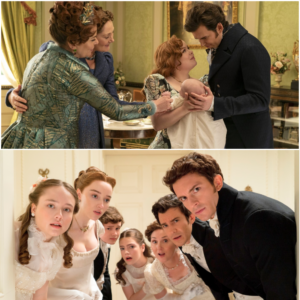At 10:45 AM on Tuesday, July 29, 2025, a startling exposé by royal commentator Richard Kay has unveiled the turbulent dynamics at King Charles III’s beloved Highgrove estate, where an exodus of gardeners has exposed the monarch’s exacting standards. Close friends of the King have revealed that his relentless demands, coupled with a pivotal sacking, have sparked a rift with his gardening team, leading to the departure of nearly all staff. The phrase “Don’t put that man in front of me again,” reportedly uttered by Charles, has become a symbol of the tension, shedding light on a royal sanctuary now marred by discord.
A Legacy Tarnished by High Expectations
Highgrove House, the Gloucestershire retreat where Charles has poured his heart into creating a horticultural haven since 1980, has long been a testament to his passion for organic gardening. Yet, behind the manicured lawns and vibrant flower beds lies a story of upheaval. Over the past three years, 11 of the 12 full-time gardeners have quit, including the head gardener and deputy, leaving the 15-acre estate in a staffing crisis. Friends attribute this mass departure to Charles’s meticulous oversight, where he patrols the grounds with secateurs and a notebook, issuing detailed feedback in red-inked memoranda that range from praise to pointed criticism.
The troubles escalated after a key sacking that friends say marked a turning point. The dismissal of a senior gardener, reportedly due to a lack of knowledge about a specific flower, triggered Charles’s frustration, leading to his sharp remark, “Don’t put that man in front of me again.” This incident, combined with claims of understaffing and low morale, has painted a picture of a workplace strained by the King’s uncompromising vision. Staff grievances filed in late 2023 highlighted physical injuries and exhaustion from trying to meet his exacting requests, such as moving a single ragwort near his swimming pool or perfecting the shade of his prized delphiniums.
A Vision at Odds with Reality
Charles’s dedication to Highgrove is undeniable, having transformed it from a blank canvas into a globally admired garden that attracts over 40,000 visitors annually. His hands-on approach, once a source of pride, now appears to have fostered a demanding environment. Friends suggest his cancer treatment and reduced energy levels have intensified his reliance on staff to uphold his legacy, yet the turnover suggests a disconnect between his ideals and the practical challenges faced by the team. The King’s Foundation, which manages the gardens, has defended its practices, pointing to below-average staff turnover and recent pay raises, but the exodus tells a different story.
The sacking that sparked the unrest is said to have set a precedent, with subsequent departures fueled by low wages—some as little as minimum wage—and a perceived lack of support from management. One insider noted that Charles’s habit of phoning staff at all hours, a trait from his days as Prince of Wales, has carried over, adding to the pressure. Despite the estate’s £6 million turnover, resources remain tight, forcing reliance on temporary workers and volunteers from other royal properties.
A Royal Dilemma
The revelation has stirred mixed reactions. Some see Charles’s attention to detail as a natural extension of his lifelong commitment to sustainability, while others question whether his perfectionism has crossed into unreasonable territory. Friends argue that his health challenges and the emotional weight of maintaining Highgrove amid public scrutiny have amplified his demands, yet they also acknowledge his intent to preserve a legacy tied to nature. The Foundation’s response suggests efforts to address the issues, including mental health support and management training, but the damage to staff morale appears deep-seated.
As the King retreats to Highgrove for solace, this crisis highlights a rare vulnerability in his reign. The phrase “Don’t put that man in front of me again” lingers as a stark reminder that even royal sanctuaries can harbor thorns, challenging the harmony Charles seeks to cultivate. With the situation unresolved, the future of Highgrove’s gardens—and the team that tends them—remains uncertain, casting a shadow over one of the monarch’s most cherished projects.





